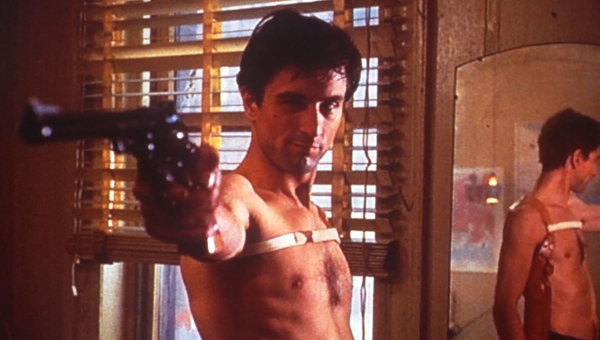Taxi Driver: 35th Anniversary Release Review

I’ve had many a heated argument about films commonly regarded as classics which are so obviously cinematic headaches.
For me, Scarface is a textbook example of this; a self indulgent, messy story that could have been told a lot quicker than what felt like the eternity it took to play out as I watched it.
When I’ve brought this up to other people, they react as if I just strangled the family cat with their father’s colon right in front of their very eyes.
Apparently, some films are sacred. And you’re forbidden from criticising films that fall under this umbrella of sacredness
It’d be like pissing on Jesus.
For most people, Scarface is one of these films. And so is Martin Scorsese’s Taxi Driver.
Re-released on it thirty fifth anniversary, Taxi Driver is truly revered by many a cinema lover and for this reason alone I really wanted to write a critique that highlighted how dated and unconnected it is today.
Unfortunately, it’s more relevant than ever before.
You know all those cheap, glossy magazines at your local hairdressers; chock full of nobody’s desperate to be somebody. Well, in Travis Bickel, Taxi Driver has the ultimate nobody.
Bickel, played by Robert De Niro with incredible verve, is the Vietnam War soldier who’s returned home to find neither a heroes welcome nor any kind of real aftercare. This is how we’re introduced to Bickel; a young man, afforded pariah status as so many Vietnam Vets were, and suffering from what would now be diagnosed as post traumatic stress disorder.
Though hardly mentioned, Bickel’s Vietnam experience has clearly affected him. Lonely and suffering from insomnia, he takes up a job as a night taxi driver. Unable to adjust back to a society he now finds himself adrift in, Bickel surveys the streets from behind his steering wheel and see’s ugliness everywhere.
Until his gaze falls upon Betsy.
Betsy is a volunteer for one Senator Palantine’s Presidential campaign. Sat in his taxi across the street, Bickel’s infatuation with Betsy slowly entrances him. He feels like he already knows her and wants to protect Betsy from the hideous nature of New York; because she is good in a world of bad.
So he walks right up and tells her that.
This approach to getting a date has never proved fruitful for me, but for Bickel it works. Betsy gives him a chance to get to know her over coffee, and he proceeds to expand upon his thoughts of her purity and how the streets are filled will scum. Betsy listens and tells Bickel he’s like no man she’s ever met.
And to highlight this point, he takes her to a porn theatre on their second date.
Something I usually save up for the fourth.
Unsurprisingly, Betsy terminates their fledgling dalliance and, ignored by the world around him once more, Bickel spirals dangerously out of control.
Thirty five years on from its initial release, Taxi Driver has endured rather well and is as compelling as any flick being made today. In fact, it needs several viewings to take everything in.
Scorsese gives us a valuable insight into the mind of the outsider that should be re-released every year and screened in town squares across the county as a cautionary tale. In Travis Bickel, Taxi Driver has one of the most memorable characters of any film I’ve seen and is a disturbing warning of what a dollop of bad food and a dose of insomnia can do to your mental health.
The only thing that felt dated was the score, which seemed slightly ill-fitting with some scenes. But this is a minor gripe for a film of such sublime production and outstanding performances from the ensemble cast.
So I’ll be having no arguments with the hardcore film shits about this one. Taxi Driver is truly a classic and one that will still be delighting and disturbing audiences well beyond its golden anniversary.
Tim Green